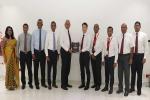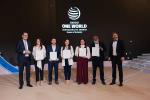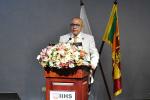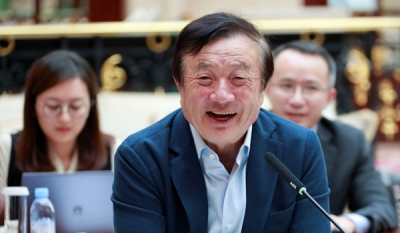“I think Huawei's goal is to work hard to develop advanced technologies, and provide cutting-edge services to humanity,” Ren said during a recent interview with the Bloomberg TV.
“We will enhance cooperation with any company that is willing to support us,” he told the media in a separate interview.
“As the Chinese saying goes, ‘a just cause attracts much support, an unjust cause finds little.’ This is how we are building a united front.”
On September 3, Huawei Asia-Pacific Innovation Day will be held in Chengdu, China, which will gather together experts, innovators, scholars, and policy-makers to explore innovative and meaningful applications of cutting-edge technologies such as 5G, Artificial Intelligence, and how they can drive progress in all areas of human endeavor.
At the event, Huawei will unveil its Kunpeng Ecosystem Base.
Latest innovations such as 5G telemedicine and AI application for children with hearing loss will be showcased.
“Over the past 30 years, we've been staying in the front line to serve humanity.
Huawei can always be found anywhere at any time, be it in war-torn or disease-ridden regions, or during natural disasters like the nuclear leakage in Japan,” said the Huawei CEO.
Ren told the media that in the next five years, Huawei will invest $100 billion in reshaping network architecture, so that networks can be simpler, faster, more secure, and more trustworthy.
“When information transmission speeds increase, we will see incredible economic growth.
5G is at least 10 times faster than 4G, and faster speeds will drive rapid economic and cultural development,” he said.
According to the company’s 2018 Sustainability Report, innovative technologies have made Huawei's 5G more energy-efficient, reducing the power consumption per 5G site to 20% less than the industry average.
With programs such as Tech4ALL, which focuses on connectivity, applications, and skills, the world’s leader in 5G will help 500 million people directly benefit from digital technology over the next five years.
“In the information society, children even in remote regions can see what the world looks like.
Then they will develop faster, grow more harvests, and create more wealth.
More people will be lifted out of poverty. All this will benefit society.”
On the recent challenges, the CEO said during an interview that the company will not be crushed by U.S. restrictions, “in fact, we are doing even better than before.”
In the first half of 2019, Huawei’s revenue reached CNY401.3 billion, a 23.2% increase over the same period last year.
The company will invest CNY120 billion in R&D this year, according to its H1 report.
“We want to satisfy society and people, because our ultimate goal is to serve our customers.
Who are our customers? 6.5 billion people, and possibly more in the future for more IoT connections.
Therefore, we are committed to creating value for customers and ensuring we satisfy people's needs,” Ren Zhengfei said.
About Huawei
Huawei is a leading global provider of information and communications technology (ICT) infrastructure and smart devices.
With integrated solutions across four key domains – telecom networks, IT, smart devices, and cloud services – we are committed to bringing digital to every person, home and organization for a fully connected, intelligent world.
Huawei's end-to-end portfolio of products, solutions and services are both competitive and secure.
Through open collaboration with ecosystem partners, we create lasting value for our customers, working to empower people, enrich home life, and inspire innovation in organizations of all shapes and sizes.
At Huawei, innovation focuses on customer needs.
We invest heavily in basic research, concentrating on technological breakthroughs that drive the world forward.
We have more than 180,000 employees, and we operate in more than 170 countries and regions.
Founded in 1987, Huawei is a private company fully owned by its employees.
Photo Caption - Ren Zhengfei, founder and chief executive of Huawei






















